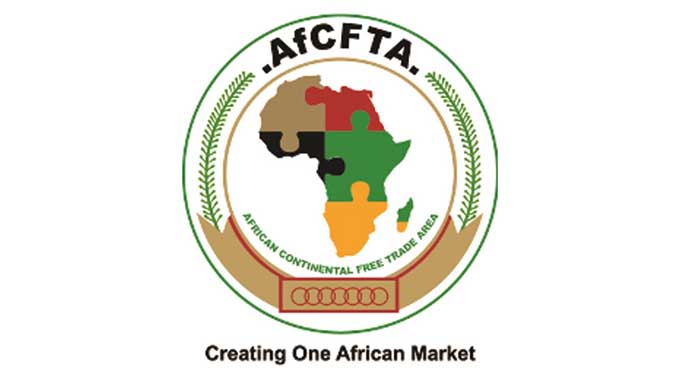AfCFTA establishment pushed to 2021 by Covid-19

The Africa Continent Free Trade Agreement (AfCFTA) that was scheduled to kick off on the 1st of July 2020 is now set officially to come into force with effect from January 2021 as advised by the secretary general Wamkele Mene.
The advent of the Covid-19 pandemic affected the initially scheduled date as countries had to re-adjust swiftly in an attempt to contain the devastating Covid-19 that has marauded almost every economy, while claiming lives of more than 400 000 people globally.
The first move by countries globally, was to close down borders, while allowing movement of only essential goods and services through the restricted borders. However in Africa, Covid-19 went beyond the effect of closed borders but also delayed the onset of the much awaited AfCFTA.
This new date of the AfCFTA has been great news to Africa against a back drop of voices that were totally against the postponement in the first place. The latter sentiments have been driven by the urgent need for intra Africa — trade as global markets face decimation by the corona virus pandemic, giving rise to anti-globalisation.
The IMF in its latest report has applauded the way African leaders have managed to contain the Covid-19 pandemic in their countries but it has also expressed concern on how the economies have contracted.
The IMF’s June report says that the Sub –Saharan African economies will shrink by 3,2 percent in the year 2020 doubling the figure IMF had projected earlier on this year. It will be the worst economic performance by Sub–Saharan countries in recent history as observed by the IMF.
The poor performing economies in Africa have exposed the livelihoods of the most vulnerable groups of people with per capita income declining rapidly by between 0,1 percent and 15 percent. Some analysts have postulated that the impact of the coronavirus will wipe out 10 years of economic progress in Africa. In real terms it means that an estimate of about 20 million people in Africa will be steeped in poverty because of the effects of the pandemic.
The news that the AfCFTA comes into effect in January 2021 comes as a relief to many because of the dire economic situation projected by the IMF. Africa is anxious to wriggle itself out of this situation caused by Covid-19 as soon as the conditions allow, while protecting her citizens from the pandemic.
In various interviews secretary general Wamkele Nene has emphasised how the AfCFTA will be the stimulus package to rescue African economies from the economic downturn. His views have been echoed by Vera Songwe, the executive secretary of the Economic Commission for Africa who also shares the same views.
Ms Songwe says AfCFTA will be the Marshall Plan of Africa more so as debt levels have been elevated, shrinking further the fiscal spaces in those economies. This also means Africa is in a difficult position to find any financial help due the level of debt obtaining in different countries within the continent. Ms Songwe has further observed that integration of African governments, private sector and other stakeholders should be able to create an Africa that will be resilient with a strong recovery strategy and an improved fiscal space.
As much as the AfCFTA is ready to take off there still remain issues that still need to be resolved. Some of the issues are rules of origin and Intra–Africa Payment.
The protocol on rules of origin remains to be finalised although 80 percent of the work has already been done. The Rules of Origin remain very significant as the accelerated industrialisation will much hinge on the rules of origin. The Rules of Origin remain complex by design due to the role they play and it is therefore understandable why it has taken time to finalise this technical aspect of the AfCFTA. Weak Rules of Origin may immensely work against the AfCFTA giving rise to compromised value addition and serious revenue leakages.
AfCFTA has designed the Pan-African Payment Settlement Systems (PAPSS) launched by the African–Export Import Bank at Niamey to facilitate settlement of payments through countries’ local currencies so as to reduce dependency on hard currencies. This has been met with mixed reactions due to fixed rates of exchanges found in most African countries. It is a good initiative although there are still modalities to be worked out.
Africa imports almost 90 percent of her drugs from global markets. The reduced trade due to the Covid-19 pandemic has become an opportunity for Africa to produce her own drugs and create value chains that will absorb the youth bulge, which is also a concern of Africa. The creation of the Africa Centre for Disease Control and the various collaboration partners has enhanced job creation opportunities. However, the Protocol of Intellectual Property Rights has not been finalised in the AfCFTA. That needs to be addressed in order for Africa to manufacture drugs for the continent and address health concerns, while creating the needed jobs in the spirit of AfCFTA.
Of the 54 countries that have signed 30 have ratified and 28 have deposited the instrument of ratification. It is envisaged that towards the implementation date more countries will ratify. The required number of countries’ ratification before implementation is 22. It is therefore solely the coronavirus that has been a huge impediment towards the much awaited implementation of AfCFTA and the ensued benefits.

